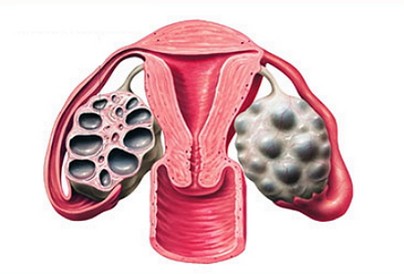The ovaries can swell, leak excess fluid into the body, and produce too many follicles, the small fluid sacs in which an egg develops. Ovarian hyperstimulation syndrome or OHSS usually results from taking medications to stimulate the ovaries, such as clomiphene and gonadotropins. It can also develop after IVF.
Symptoms include bloating, constipation, dark urine, diarrhoea, nausea, abdominal pain, and vomiting. They are usually mild and easy to treat.
Rarely, a blood clot may develop in an artery or vein, liver or kidney problems can arise, and respiratory distress may develop. In severe cases, OHSS can be fatal.
Ectopic Pregnancy
This is when a fertilized egg implants outside the womb, usually in a fallopian tube. If it stays in there, complications can develop, such as the rupture of the fallopian tube. This pregnancy has no chance of continuing.
Immediate surgery is needed and, sadly, the tube on that side will be lost. However, future pregnancy is possible with the other ovary and tube. Women receiving fertility treatment have a slightly higher risk of an ectopic pregnancy. An ultrasound scan can detect an ectopic pregnancy.
Coping Mentally
It is impossible to know how long treatment will go on for and how successful it will be. Coping and persevering can be stressful. The emotional toll on both partners can affect their relationship. Some people find that joining a support group helps, as it offers the chance to talk to others in a similar situation.
It is important to tell a doctor if excessive mental and emotional stress develop. They can often recommend a counsellor and others who can offer appropriate support. Online support from organizations such as Resolve can be helpful.


Add Your Comment